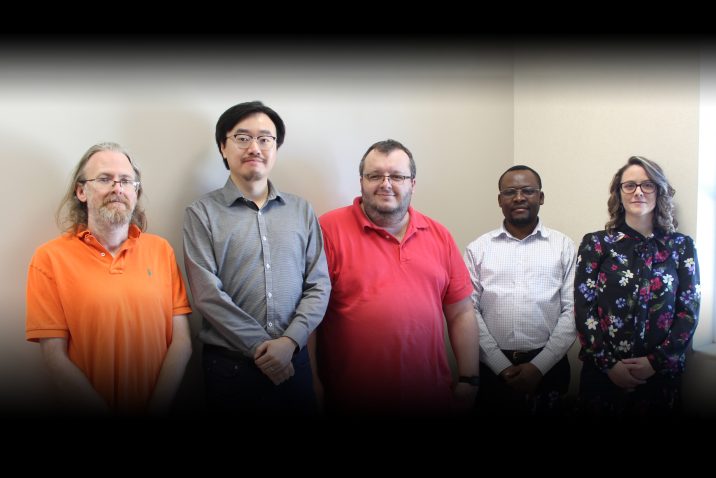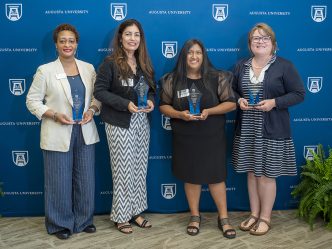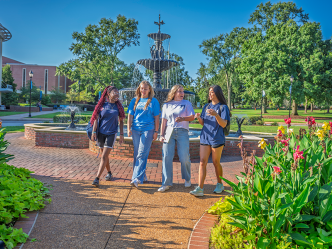The University System of Georgia Board of Regents approved a new master’s degree program in Biological and Computational Mathematics, which will be housed in Augusta University’s Department of Mathematics. Dr. Neal Smith, director of the graduate program, said the first cohort of students accepted to the Master of Science program began coursework this fall.
The department is accepting applications for admission to the program. The application period, which includes an early application deadline for students interested in assistantships, will remain open until Feb. 28, 2021.
Biological and Computational Mathematics is a program in applied mathematics with a focus on mathematical modeling. It is tailored toward applications in biological and health sciences, such as epidemiology, medical imaging and machine learning.
“Many master’s programs in mathematics are not very focused,” Smith said. “You just take a bunch of courses, and you get a master’s degree. There is not really a lot of structure to the curriculum. Our program is meant to be much more focused on biological and health sciences applications.”
The expectation is that most accepted students will enroll full-time, taking nine or more credit hours of coursework per semester. A number of assistantships will be available to full-time students. It is possible for students to pursue the program part-time.
The first two semesters of the program will consist of essential courses that are pre-requisites for later courses. Students will take an introductory research seminar in the third semester. In this course, they will explore, with various faculty, possibilities for a research project. Students will decide on an area of focus and select a faculty mentor with whom they would like to collaborate. The research project will constitute a valuable experience, particularly for those students who are interested in PhD-level study after completing the master’s degree.
There are currently many faculty in the department who specialize in applied mathematics and will be teaching in this program:
• Dr. He Yang‘s research lies in the area of computational mathematics and medical imaging. Among his areas of focus are the development of optimization methods for image reconstruction in optical tomography and the optimization of X-ray with computed tomography imaging system for radiation therapy.
• Dr. Laurentiu Sega’s research lies in the area of mutualism, mathematics modeling, epidemics, and immunology. He teaches calculus and analytics geometry.
• Dr. Eric Numfor conducts research focusing on mathematical biology, ecology, immuno-epidemiology, and eco-epidemiology.
• Dr. Anastasia Wilson specializes in mathematical modeling, numerical analysis, simulation, and optimization of real-world, physical applications. She has collaborated on research projects with other mathematicians and engineers across the nation.
A number of regional employers, including ADP and Unisys, have expressed their support for the creation of this program. Additionally, students with graduate-level skills in mathematics can find employment with agencies in the federal government. Graduates of this program will also be well prepared to pursue PhD study in applied mathematics.
“The long-term goal is that, after we can get the master’s program running, eventually we would like to have a PhD program,” Smith said.
 Augusta University
Augusta University




